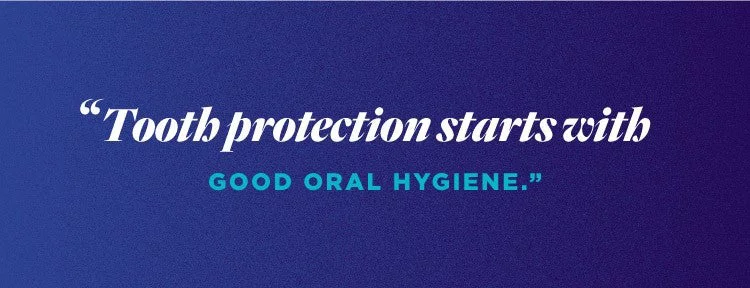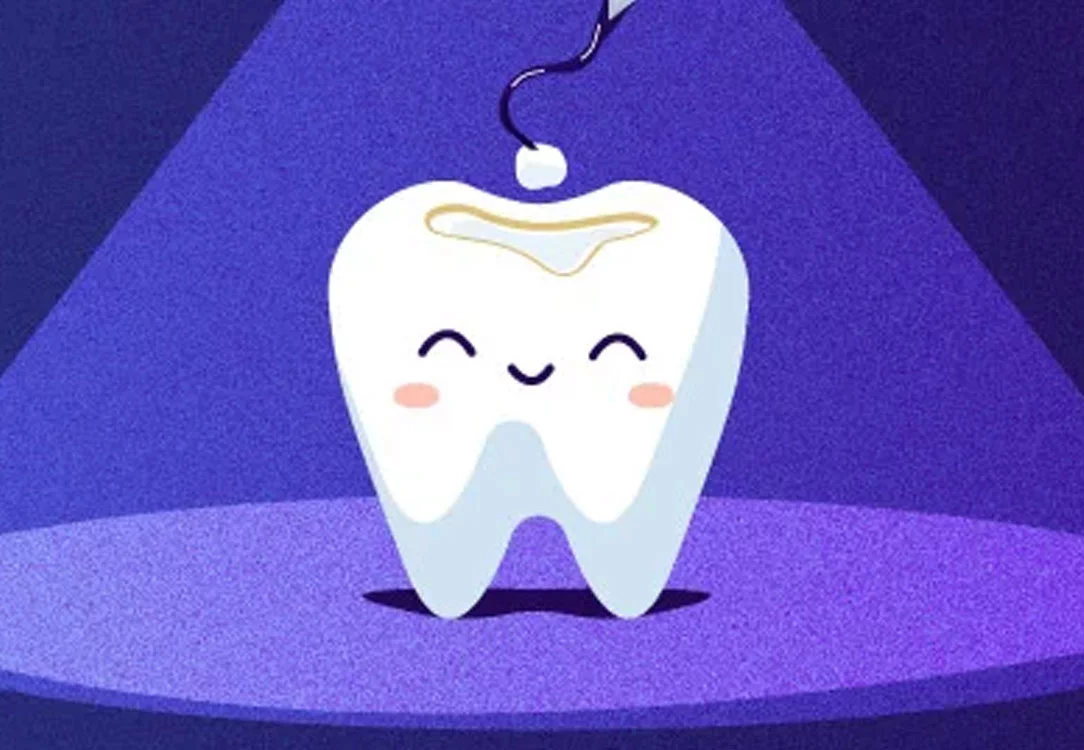Consistently practicing an oral care regimen is one way to keep yourself healthy. The effects of sugar on teeth contribute to issues such as cavities, gingivitis, and even periodontal disease. So it is critical to know why sugar is bad for your teeth and what steps to take to keep them cavity-free.
Effects of Sugar on Teeth
Does sugar cause plaque on teeth? Processed sugars cause more damage to teeth because they leave a thin layer of film known as plaque on teeth. Saliva alone cannot remove plaque. Brushing, flossing, and regular dental cleanings remove plaque.
How Does Sugar Harm Your Teeth?
Sugar can lead to tooth decay. Tooth decay initially appears as a white or brown spot when the enamel softens.
How long does it take for sugar to damage teeth? Damage can start rather quickly, but decay occurs in stages.
The first is the cavity stage. If enough enamel has worn away, reversing the cavity might not be possible. It is still important to see a dentist though. The cavity needs to be treated to prevent continued erosion. Dental fillings are common treatments, though larger cavities could need a dental crown.
Beyond dentin, decay is severe decay. An infection, known as an abscess, can develop at a tooth root’s tip. This may require a root canal treatment or tooth removal.

How Does Sugar Cause Cavities?
The mouth is loaded with beneficial and harmful bacteria. Harmful bacteria use the sugar found in food and drinks to produce acid. That acid eats away at your teeth despite saliva’s best effort to clean teeth. This process repeats itself each time a person eats.
Sugar and Teeth Facts
One side effect of enamel erosion — resulting in part from excess sugar consumption — is tooth sensitivity. Right below a tooth’s enamel is the dentin. Tooth dentin is home to microscopic tubes and canals. Foods that are hot, acidic, cold, or sugary reach the exposed dentin resulting in pain and sensitivity. Sensitivity treatment options include sensitive toothpaste, fluoride varnish, crown, inlay/onlay, composite restoration, a surgical gum graft, or a root canal.
How to Consume Less Sugar?
Making dietary changes improves your health in a variety of areas including negating rotten teeth from sugar. That goes for food and drinks as many people don’t realize the high sugar content in some of their favorite beverages.
Sugary Drinks
- Water instead of soda
- Unsweetened tea instead of energy drinks
- Milk instead of chocolate milk
- Plain sparkling water instead of a smoothie
- Diluted juice instead of fruit punch or juice
Hard Candy and Sticky Foods
Hard candies, including lollipops, are sugar havens. Along with accelerating tooth decay, hard candies can also heighten the risk of breaking or chipping a tooth. Sticky foods — such as candy and even dried fruit — stay on teeth longer. The longer those foods stay on teeth, the longer bacteria have to feed on the sugar.

How Can I Protect My Teeth After Eating Sugar?
Brushing and Flossing
Tooth protection starts with good oral hygiene. Brush your teeth at least twice a day for two minutes in duration using a toothbrush with soft bristles. Replace the brush every three to four months. Make sure your toothpaste contains fluoride.
- Hold the toothbrush at a 45-degree angle to the gums
- Move the brush back and forth using short, gentle strokes
- Brush in this order: outer surfaces, inner surfaces, and chewing surfaces
- Tilt the brush vertically and employ up-and-down strokes to clean the inside surfaces of the front teeth
Don’t forget to floss too. Flossing removes plaque and food particles from between the teeth and under the gum line. Lastly, schedule regular cleanings with your dentist.
Remineralize Tooth Enamel
Tooth enamel’s job is to protect teeth. Besides decreasing sugar intake, try remineralizing your tooth enamel. Start by chewing sugar-free gum to stimulate saliva flow. Eat high-fiber fruits and vegetables to coat your teeth in minerals. Consuming dairy products provides calcium and phosphate to strengthen teeth.
Find a Dentist Near Me
Consult your dentist to discuss any questions about the effects of sugar on teeth. Or, check out our Find a Dentist tool to find a dentist near you for all your tooth decay prevention needs. You can read patient reviews, peruse staff bios, and schedule an appointment online with a click of your mouse.
Find your trusted, local dentist today!
Sources
“How Does Sugar Affect Your Teeth,” University General Dentists, June 2021, https://utknoxvilledentists.com/how-does-sugar-affect-your-teeth/
“Your Guide to Tooth Decay Stages,” Colgate, https://www.colgate.com/en-us/oral-health/cavities/your-guide-to-tooth-decay-stages
“What Does Sugar Do To Teeth?” Colgate, https://www.colgate.com/en-us/oral-health/cavities/what-are-the-effects-of-sugar-on-teeth
“Are Your Teeth Sensitive To Sugar?” Colgate, https://www.colgate.com/en-us/oral-health/tooth-sensitivity/are-your-teeth-sensitive-to-sugar#
“Sugars and tooth decay,” Action on Sugar, https://www.actiononsugar.org/sugar-and-health/sugars-and-tooth-decay/#
“What Does Sugar Do To Teeth?” Colgate, https://www.colgate.com/en-us/oral-health/cavities/what-are-the-effects-of-sugar-on-teeth
Smile Generation blog articles are reviewed by a licensed dental professional before publishing. However, we present this information for educational purposes only with the intent to promote readers’ understanding of oral health and oral healthcare treatment options and technology. We do not intend for our blog content to substitute for professional dental care and clinical advice, diagnosis, or treatment planning provided by a licensed dental professional. Smile Generation always recommends seeking the advice of a dentist, physician, or other licensed healthcare professional for a dental or medical condition or treatment.








